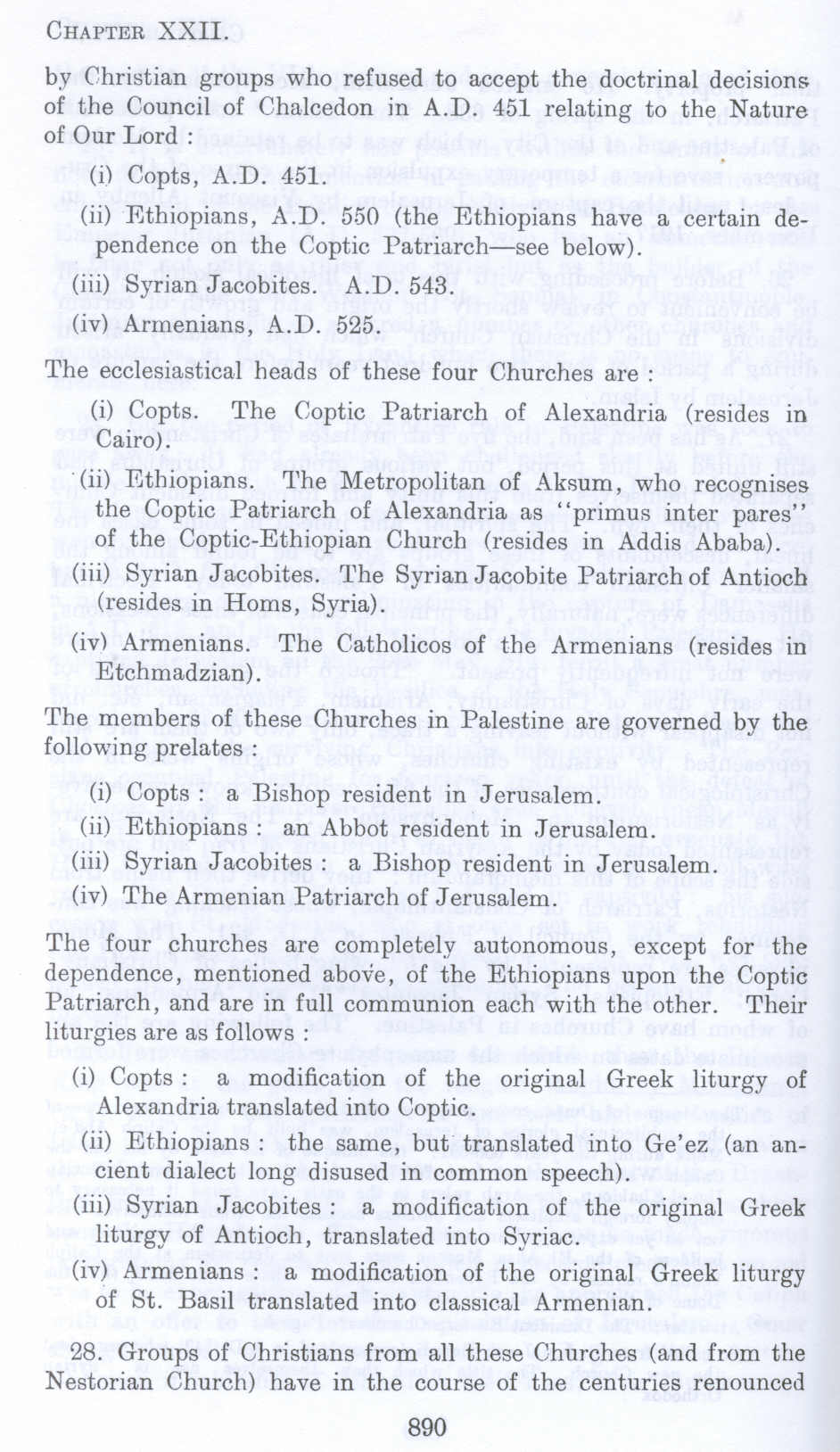| Prev | Next |  |
| Prev | Next |
| PalestineRemembered | About Us | Oral History | العربية | |
| Pictures | Zionist FAQs | Haavara | Maps | |
| Search |
| Camps |
| Districts |
| Acre |
| Baysan |
| Beersheba |
| Bethlehem |
| Gaza |
| Haifa |
| Hebron |
| Jaffa |
| Jericho |
| Jerusalem |
| Jinin |
| Nablus |
| Nazareth |
| Ramallah |
| al-Ramla |
| Safad |
| Tiberias |
| Tulkarm |
| Donate |
| Contact |
| Profile |
| Videos |
British Mandate: A Survey of Palestine: Volume II - Page 890 |
Disclaimer
The above documents, article, interviews, movies, podcasts, or stories reflects solely the research and opinions of its authors. PalestineRemembered.com makes its best effort to validate its contents.


Post Your Comment
*It should be NOTED that your email address won't be shared, and all communications between members will be routed via the website's mail server.
by Christian groups who refused to accept the doctrinal decisions of the Council of Chalcedon in A.D. 451 relating to the Nature of Our Lord:
(i) Copts, A.D. 451.
(ii) Ethiopians, A.D. 550 (the Ethiopians have a certain dependence on the Coptic Patriarch-see below).
(iii) Syrian Jacobites. A.D. 543.
(iv) Armenians, A.D. 525.
The ecclesiastical heads of these four Churches are :
(i) Copts, The Coptic Patriarch of Alexandria (resides in Cairo).
"(ii) Ethiopians. The Metropolitan of Aksum , who recognises the Coptic Patriarch of Alexandria as "primus inter pares" of the Coptic-Ethiopian Church (resides in Addis Ababa). (iii) Syrian Jacobites. The Syrian Jacobite Patriarch of Antioch (resides in Homs, Syria).
(iv) Armenians. The Catholicos of the Armenians (resides in Etchmadzian).
The members of these Churches in Palestine are governed by the following prelates :
(i) Copts : a Bishop resident in Jerusalem.
(ii) Ethiopians: an Abbot resident in Jerusalem.
(iii) Syrian Jacobites: a Bishop resident in Jerusalem. (iv) The Armenian Patriarch of Jerusalem.
The four churches are completely autonomous, except for the dependence, mentioned above, of the Ethiopians upon the Coptic Patriarch, and are in full communion each with the other. Their liturgies are as follows :
(i) Copts : a modification of the original Greek liturgy of Alexandria translated into Coptic.
(ii) Ethiopians : the same, but translated into Ge'ez (an ancient dialect long disused in common speech).
(iii) Syrian Jacobites : a modification of the original Greek liturgy of Antioch, translated into Syriac.
(iv) Armenians : a modification of the original Greek liturgy of St. Basil translated into classical Armenian.
28. Groups of Christians from all these Churches (and from the Nestorian Church) have in the course of the centuries renounced
890